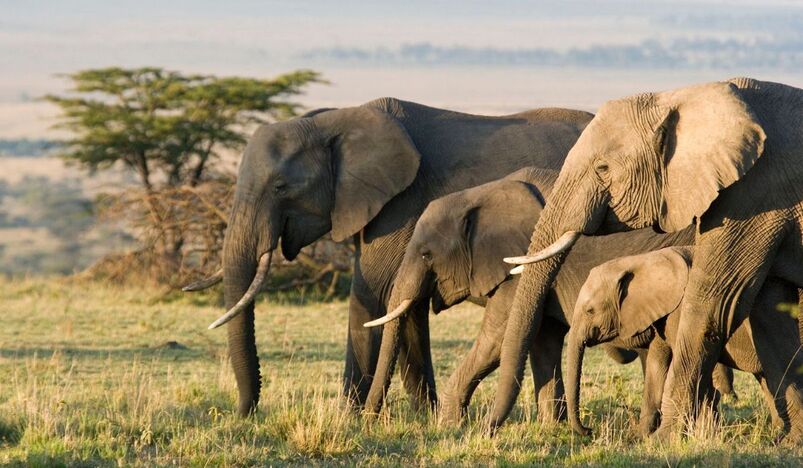
Zimbabwe Plans to Eliminate 200 Elephants Due to Food Shortages
Zimbabwe will cull 200 elephants due to an unprecedented drought that has caused severe food shortages, and to address the growing elephant population, the country’s wildlife authority announced Friday.
Zimbabwe's environment minister informed parliament on Wednesday that the country has "more elephants than it needed," and the government has directed the Zimbabwe Parks and Wildlife Authority (ZimParks) to start the culling.
The cull will take place in areas where human-wildlife conflicts have intensified, including Hwange, which houses Zimbabwe's largest nature reserve, ZimParks director general Fulton Mangwanya told AFP.
With an estimated 100,000 elephants, Zimbabwe has the world’s second-largest elephant population after Botswana. Conservation efforts have led to Hwange hosting 65,000 elephants, far exceeding its capacity by more than four times, ZimParks said. The last elephant cull in Zimbabwe occurred in 1988.
Namibia, a neighboring country, reported that it had already culled 160 animals as part of a plan to kill more than 700, including 83 elephants, due to its worst drought in decades. Both Zimbabwe and Namibia are among several southern African nations that have declared a state of emergency due to drought.
Approximately 42% of Zimbabweans live in poverty, with UN estimates showing that six million people will need food assistance during the lean season from November to March, when food is most scarce.
The decision to hunt elephants has drawn criticism, especially since the animals are a key attraction for tourists. Farai Maguwu, director of the nonprofit Centre for Natural Resource Governance, urged the government to seek eco-friendly alternatives to manage drought without harming tourism, arguing that elephants are more valuable alive than dead.
However, Chris Brown, a conservationist and CEO of Namibia's Chamber of Environment, highlighted the ecological harm caused by unchecked elephant populations, stating that elephants can severely damage ecosystems and harm other species. While Namibia’s cull has faced condemnation from conservationists and PETA as cruel and ineffective, the government argued that culling just 83 elephants out of the estimated 20,000 would help reduce pressure on grazing land and water resources.
.jpg)
Qatar Secures Place Among the World's Top 10 Wealthiest Nations
.jpg)
Hamad International Airport Witnesses Record Increase in Passenger Traffic

Saudi Arabia: Any visa holder can now perform Umrah

What are Qatar's Labour Laws on Annual Leave?
Leave a comment